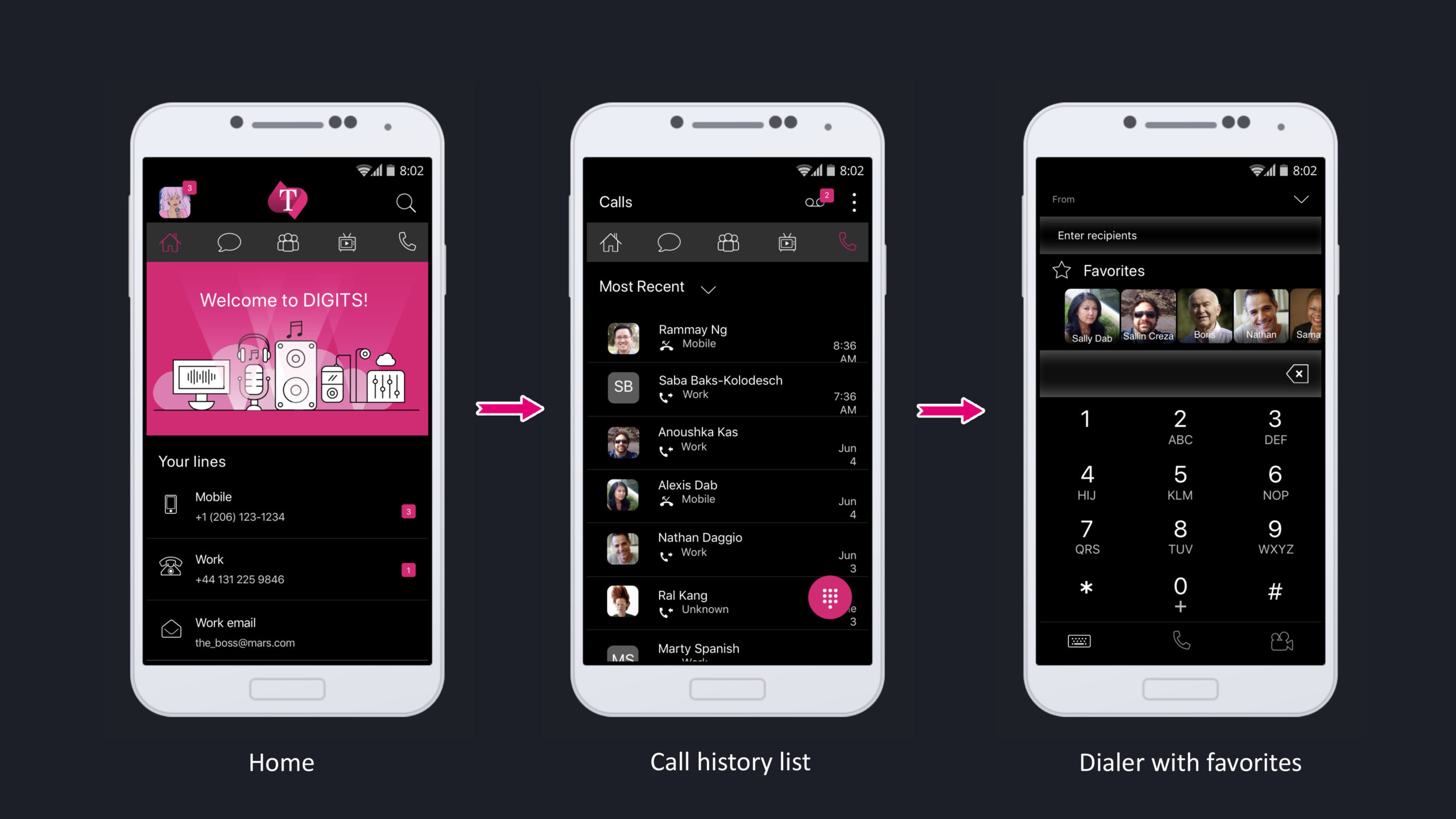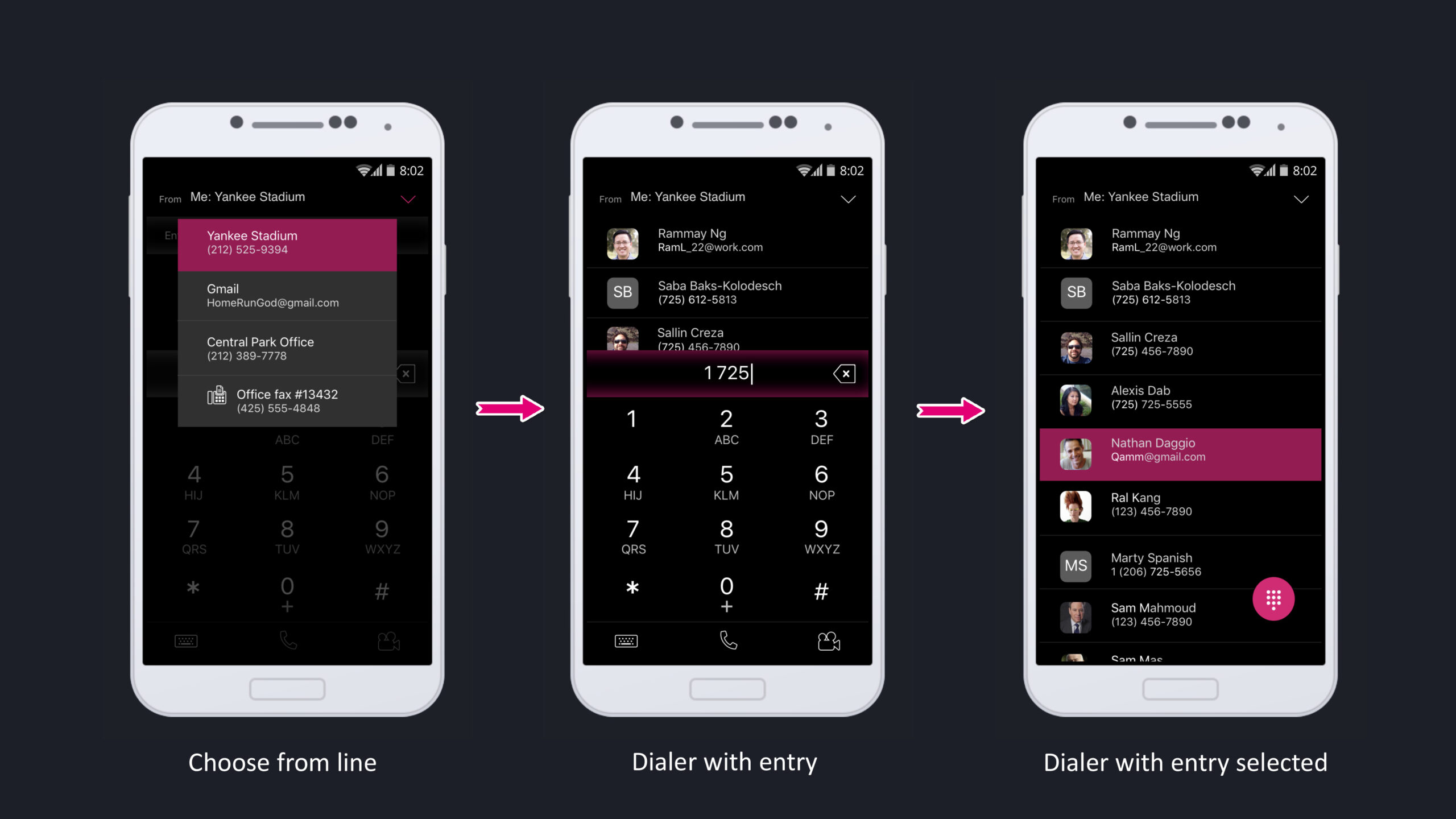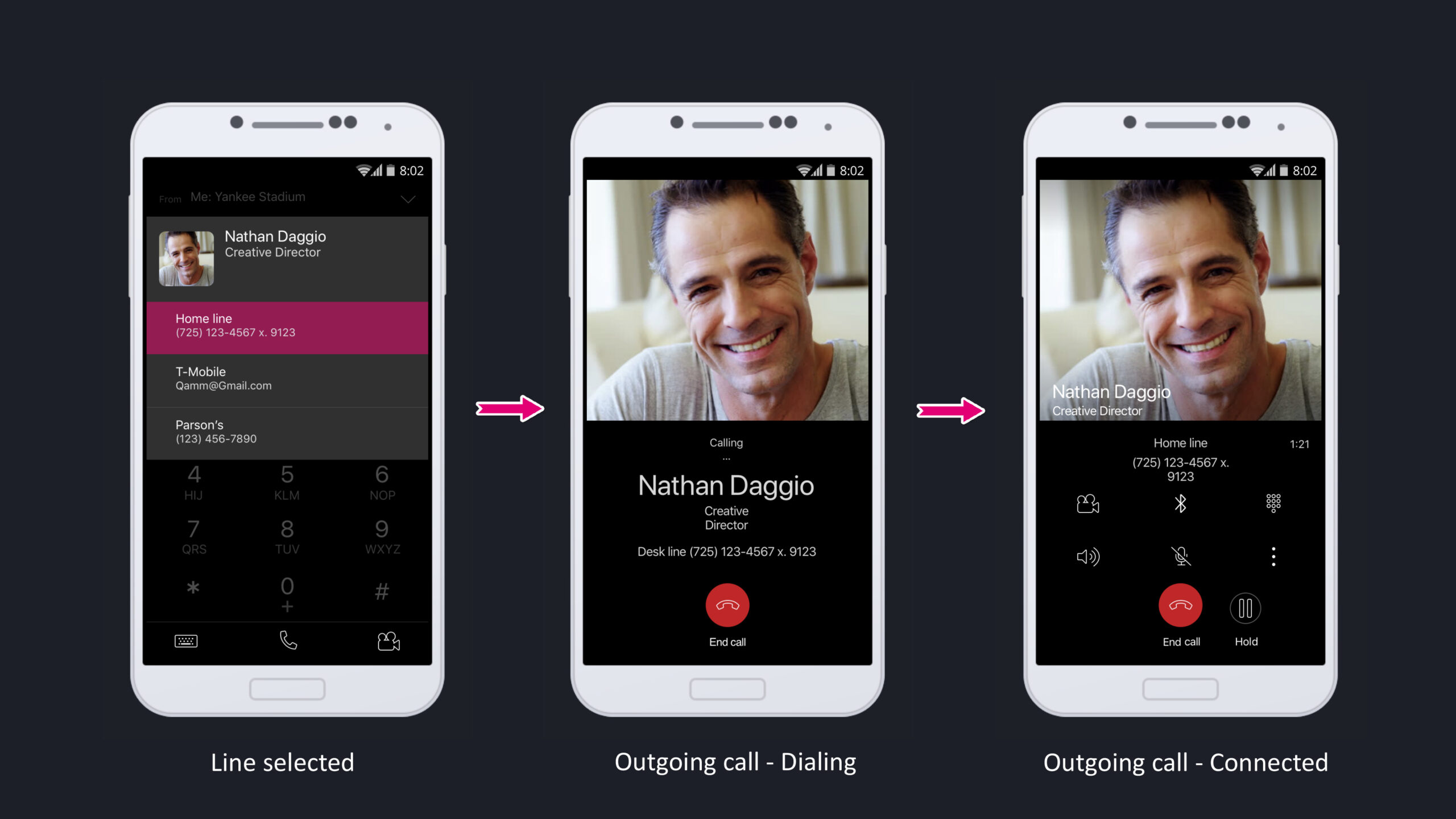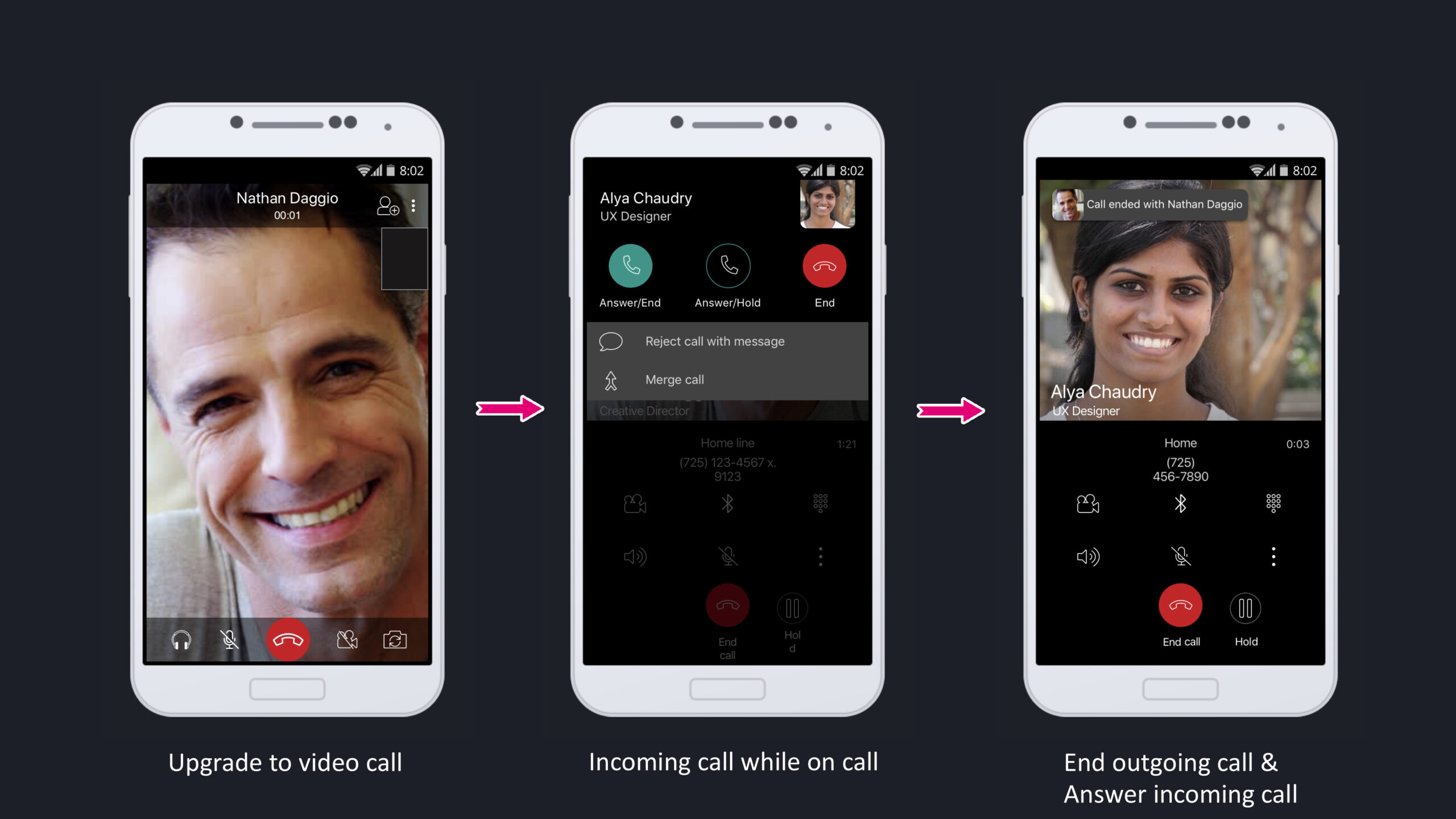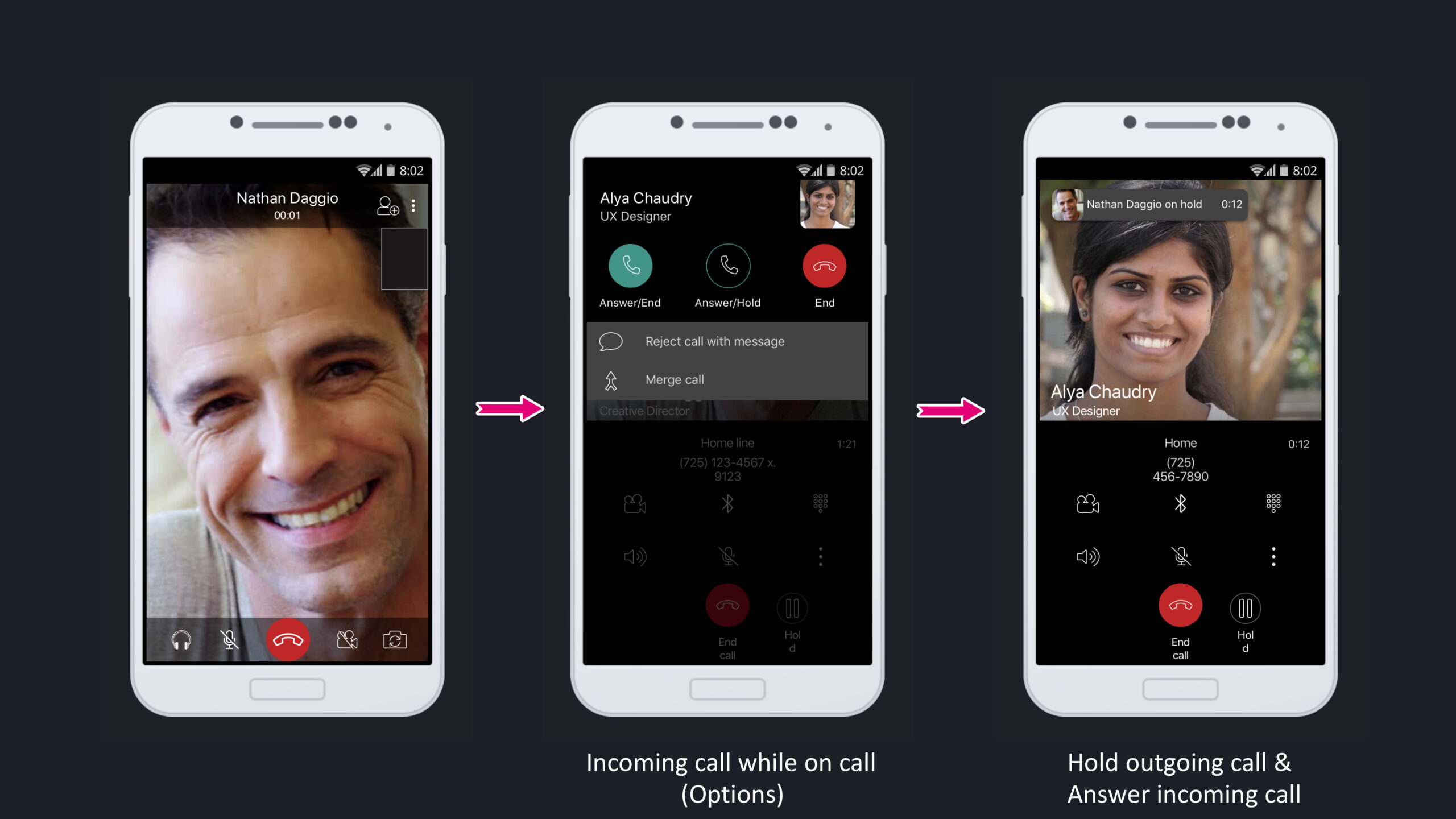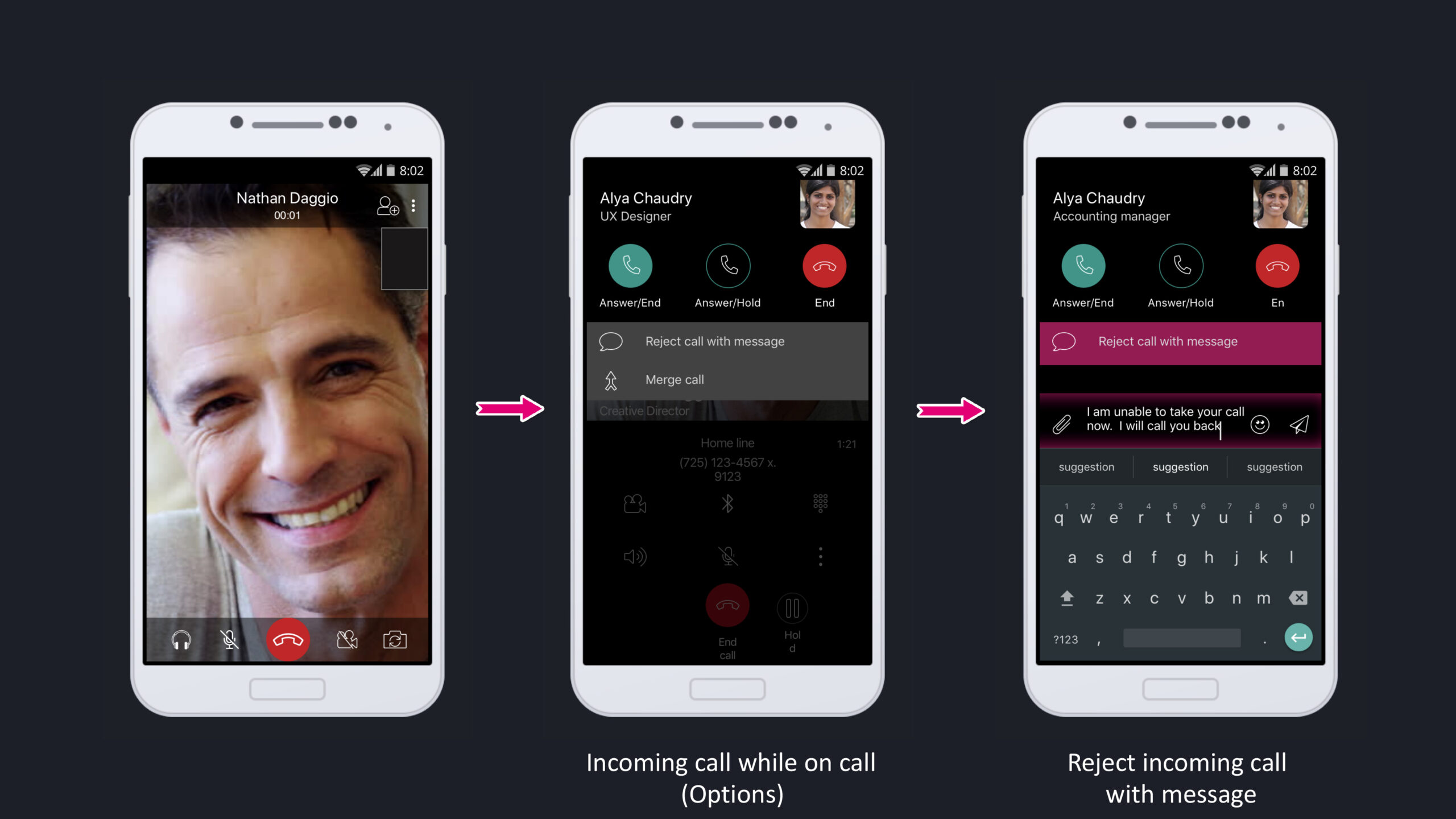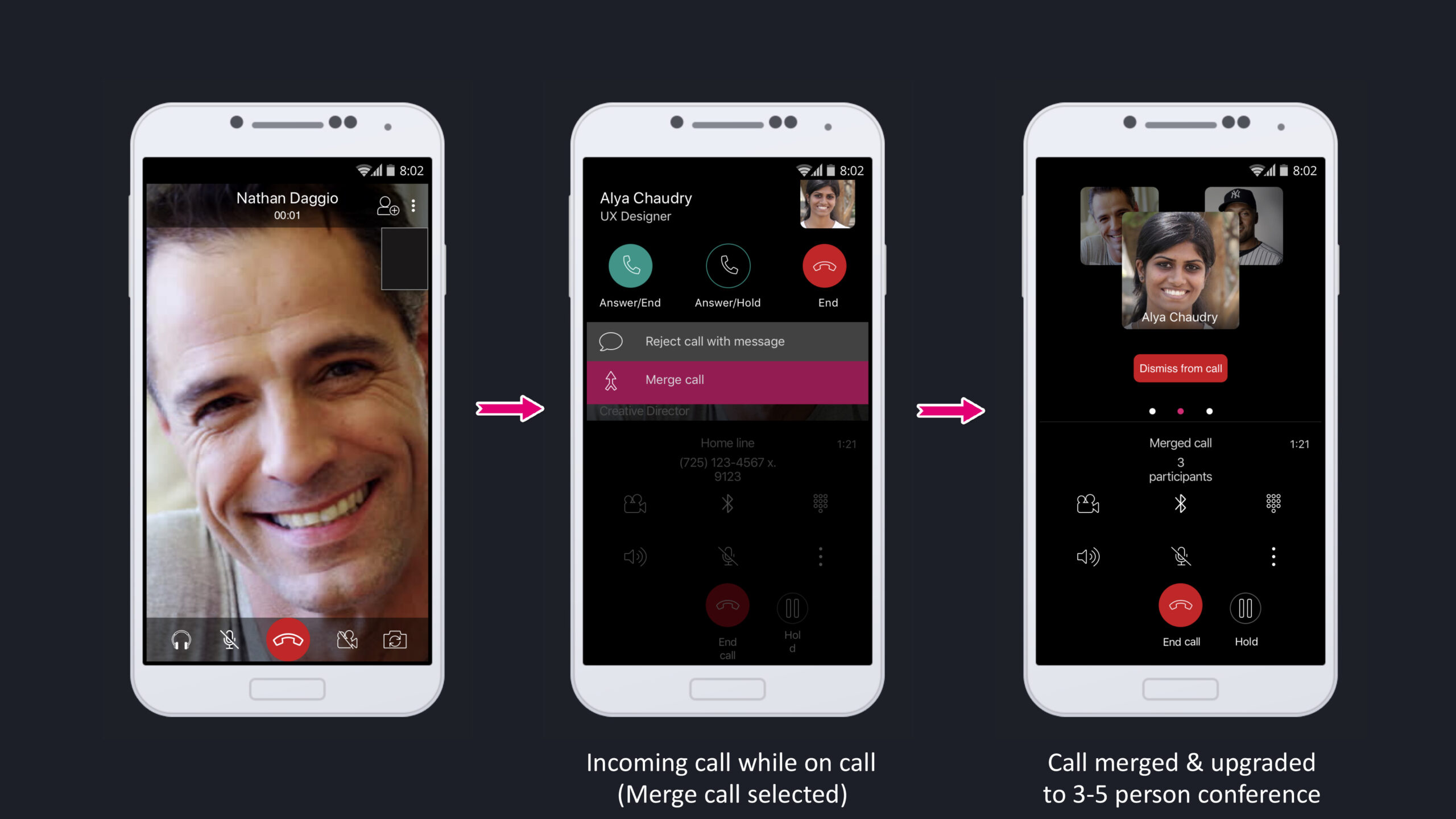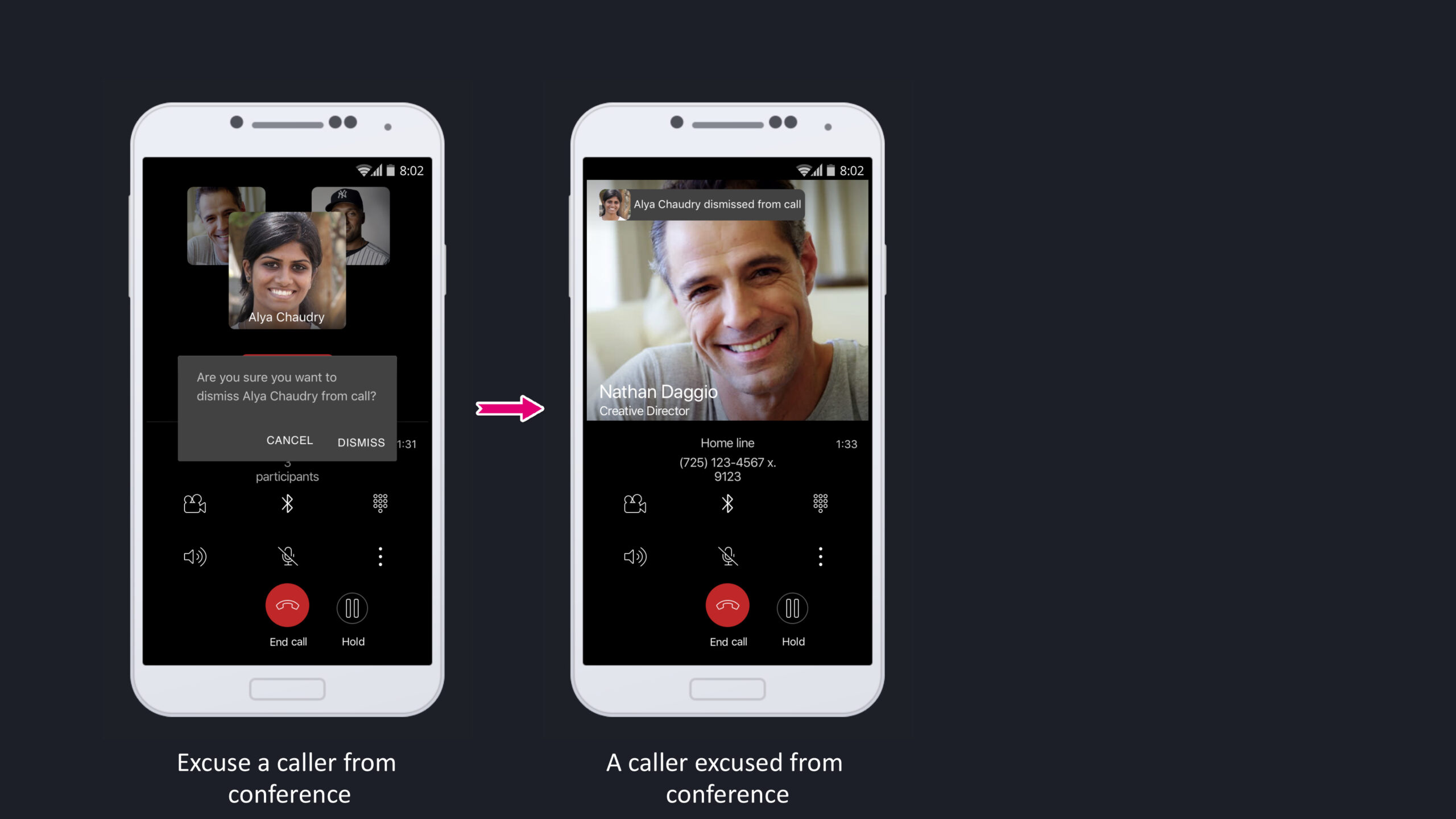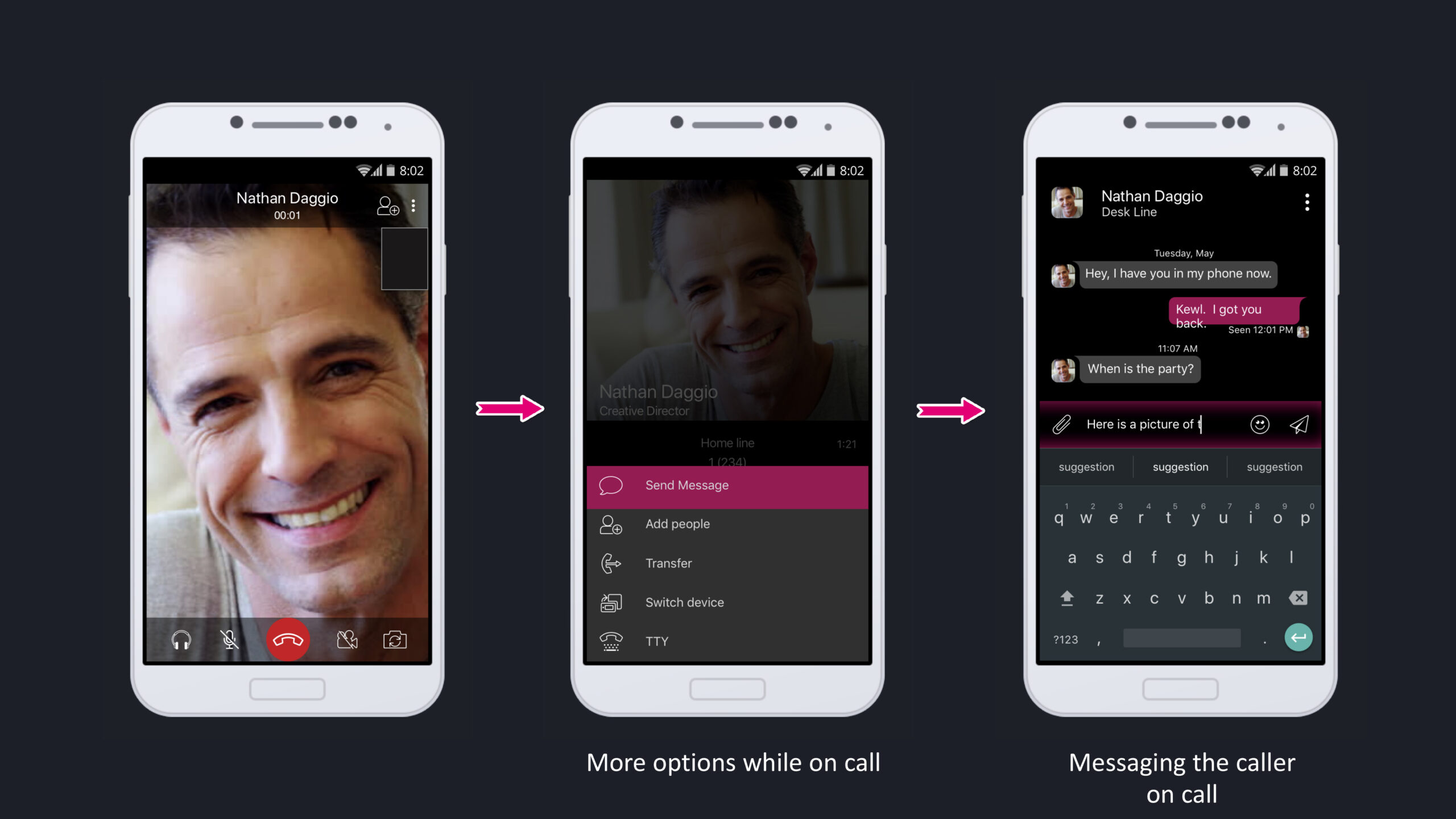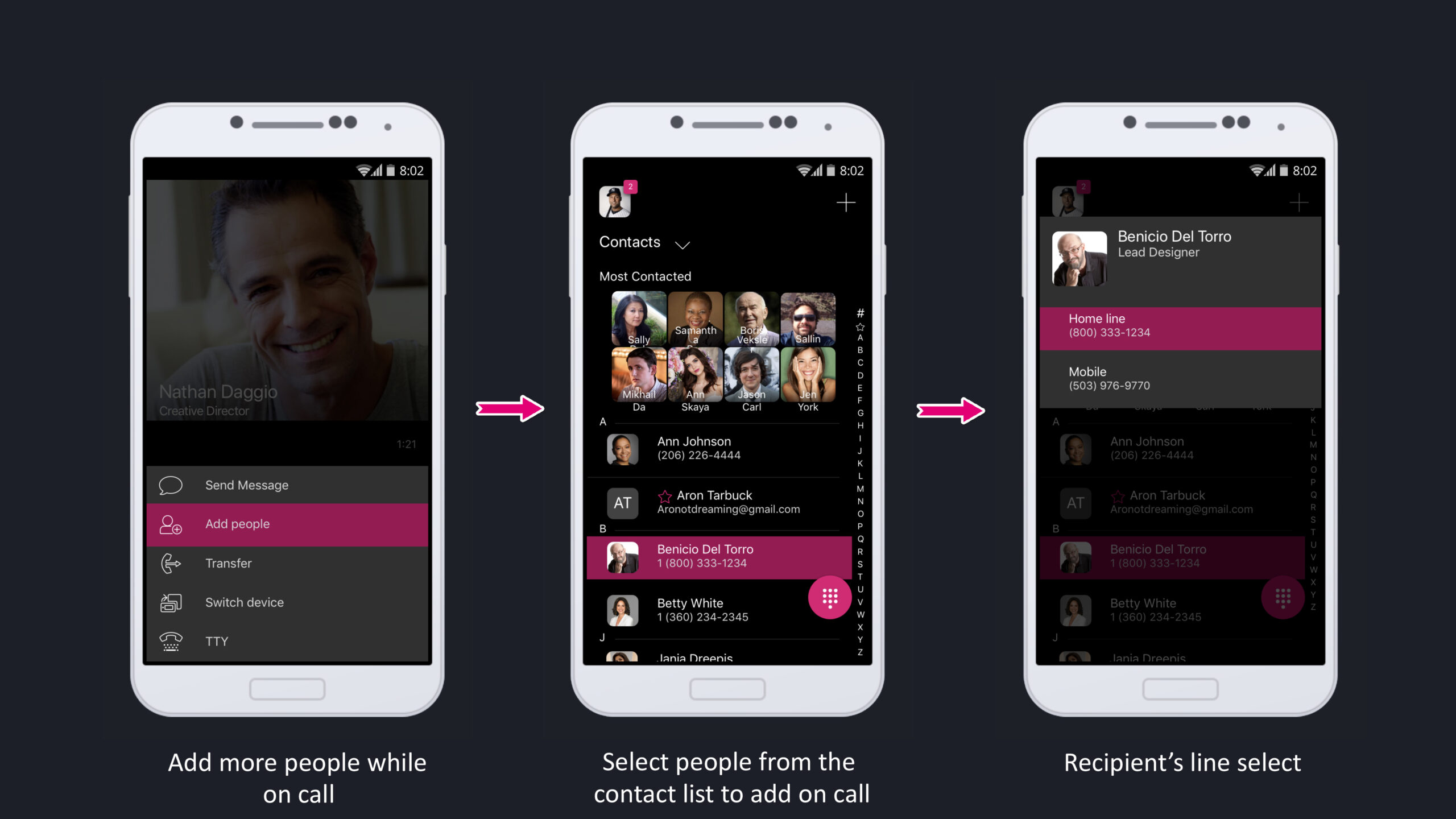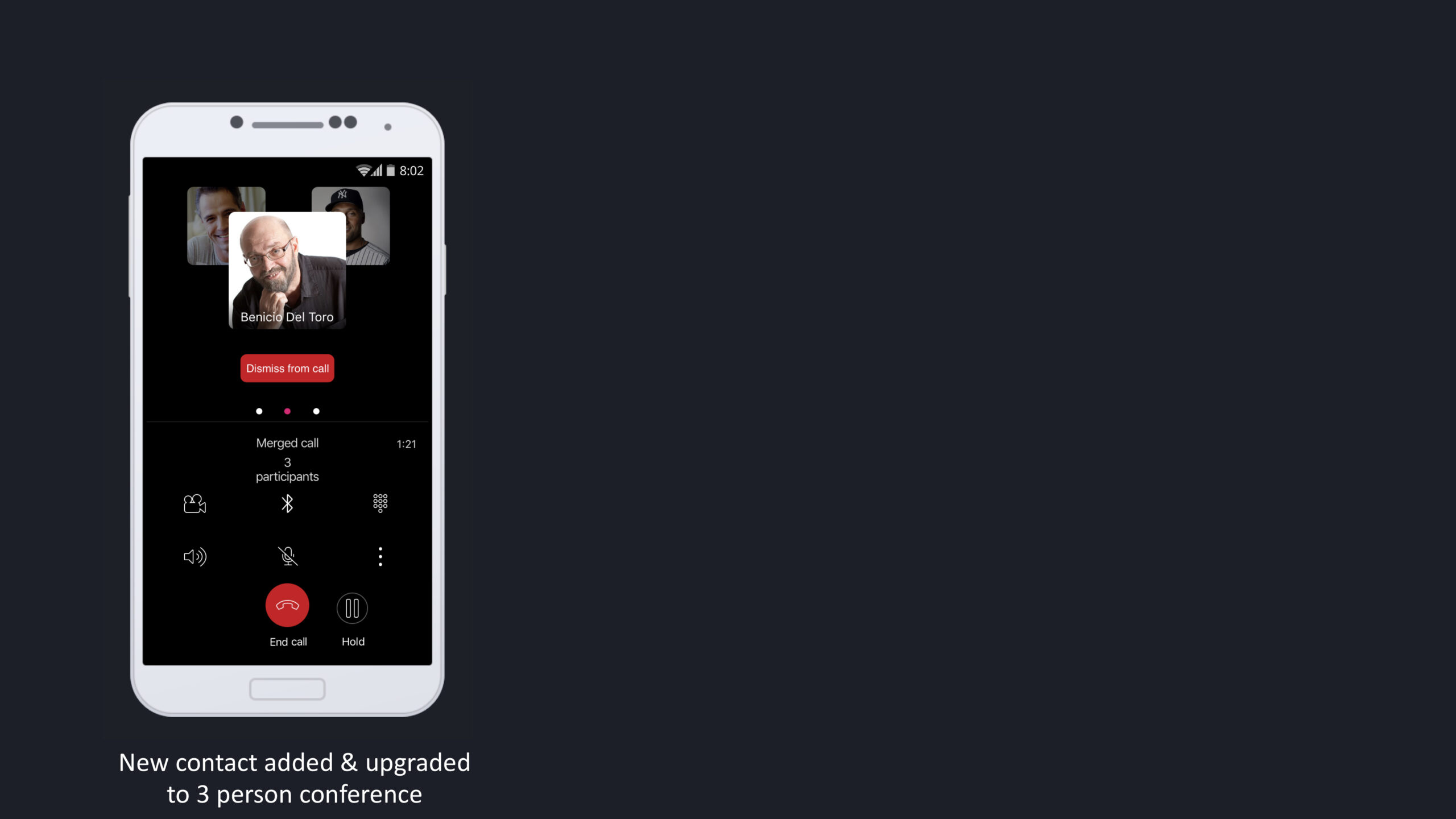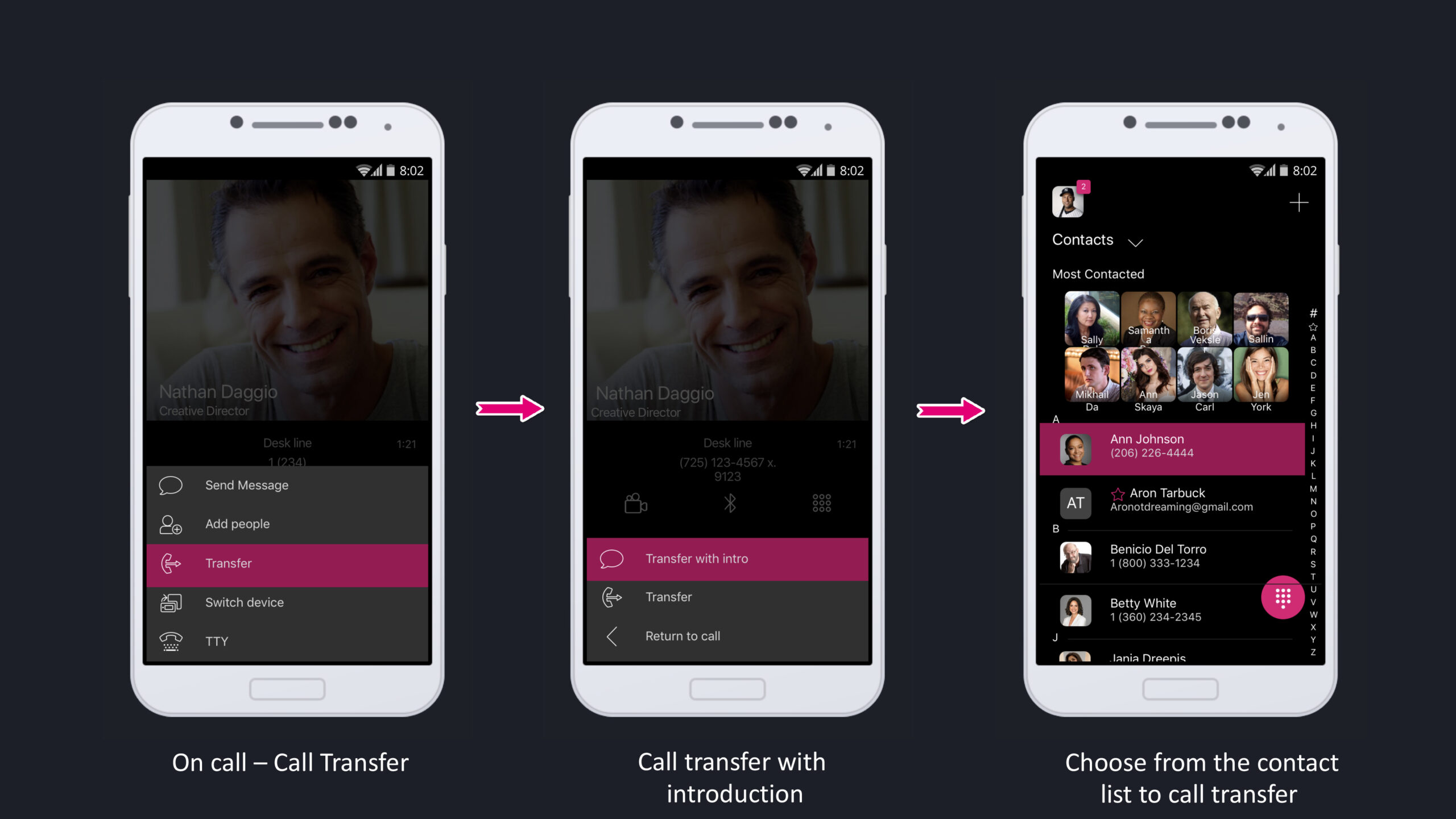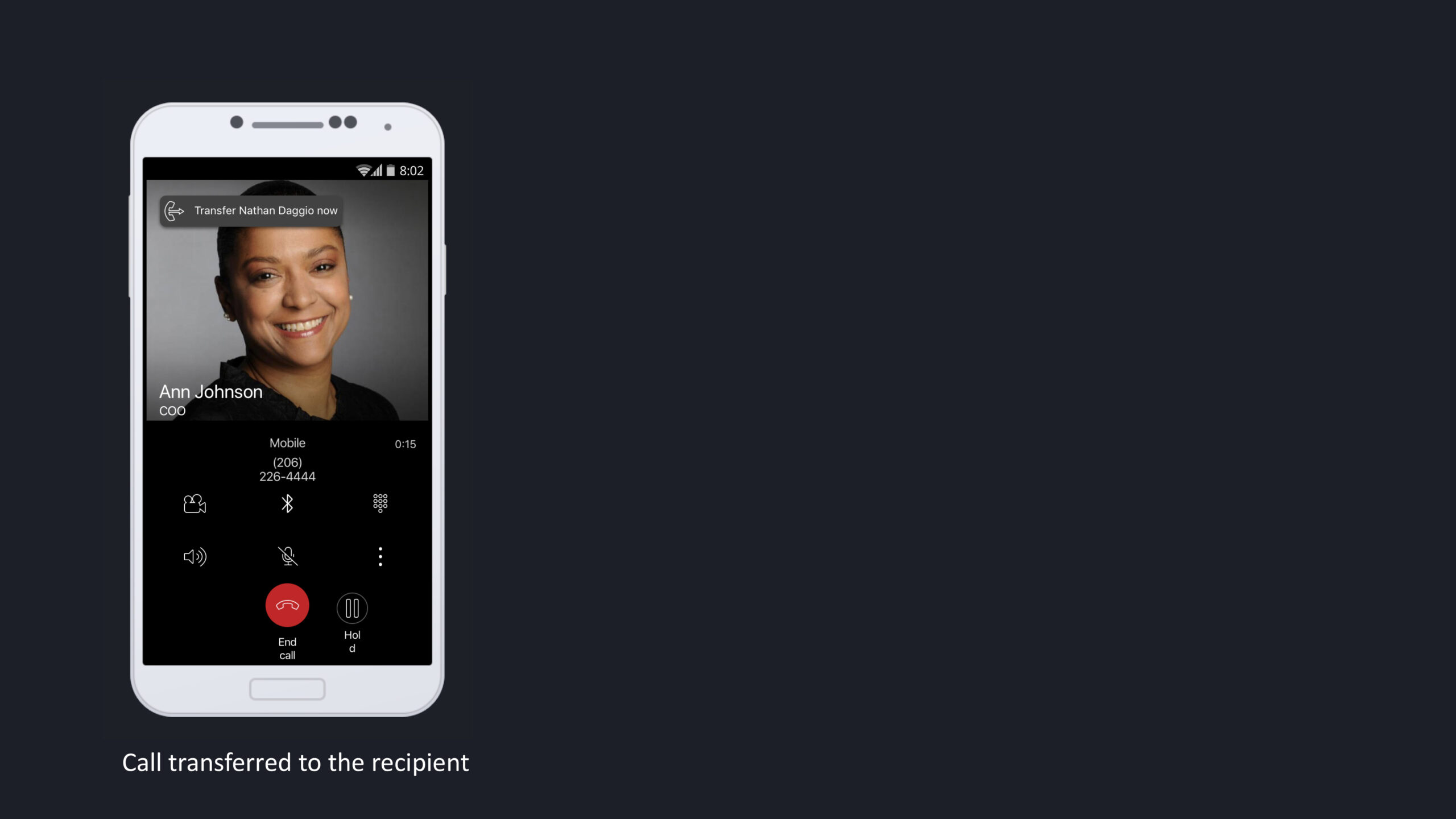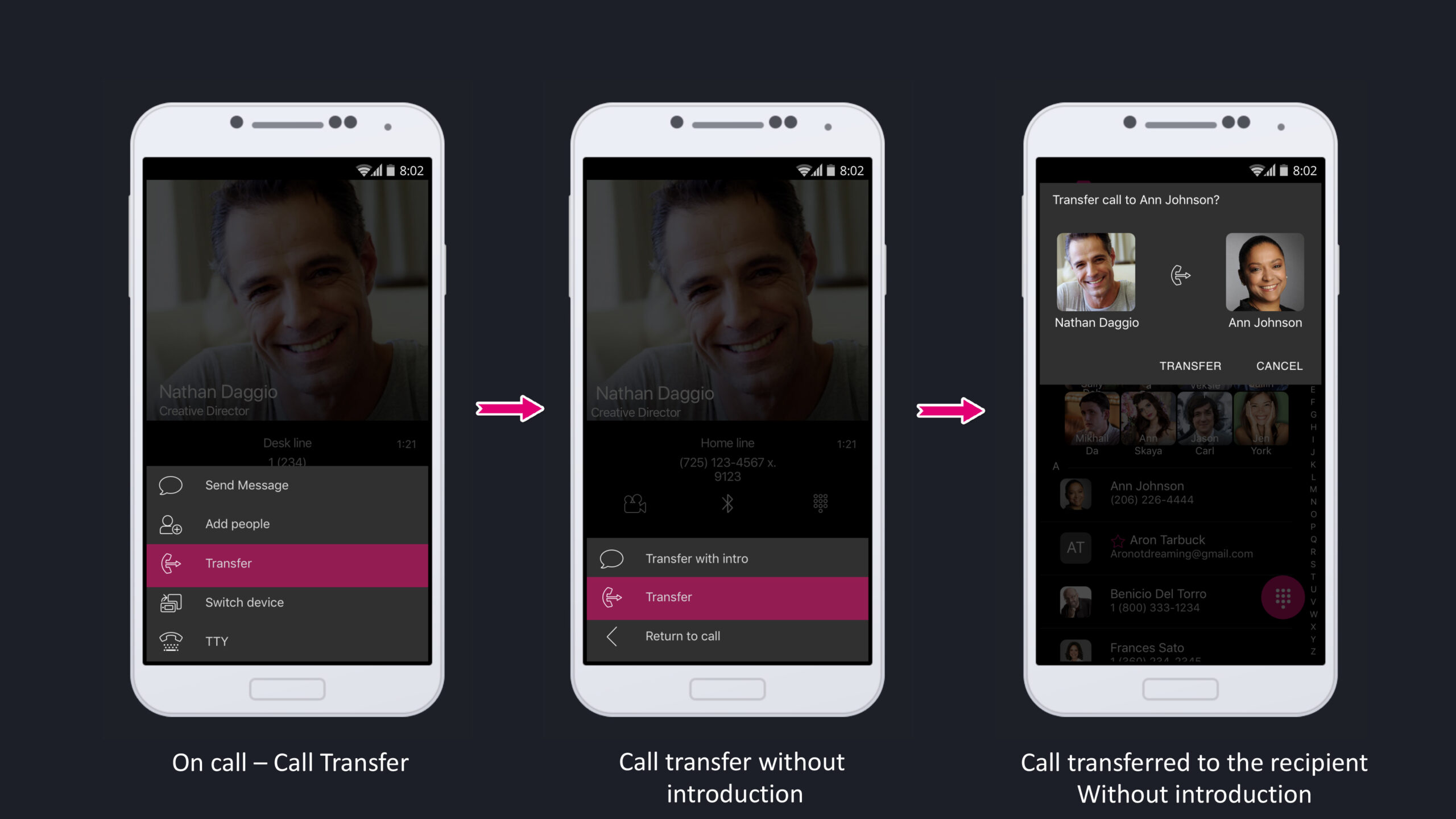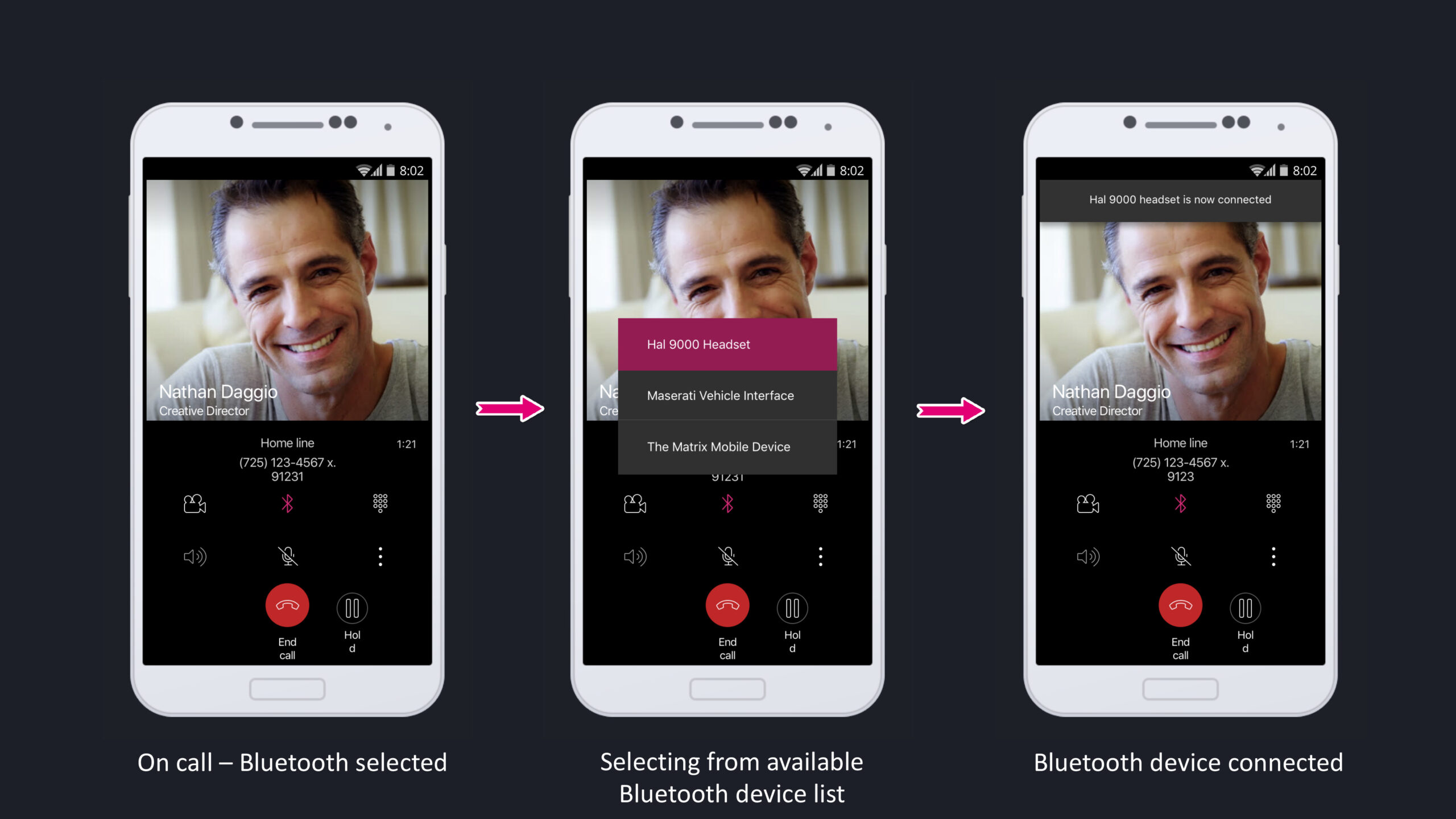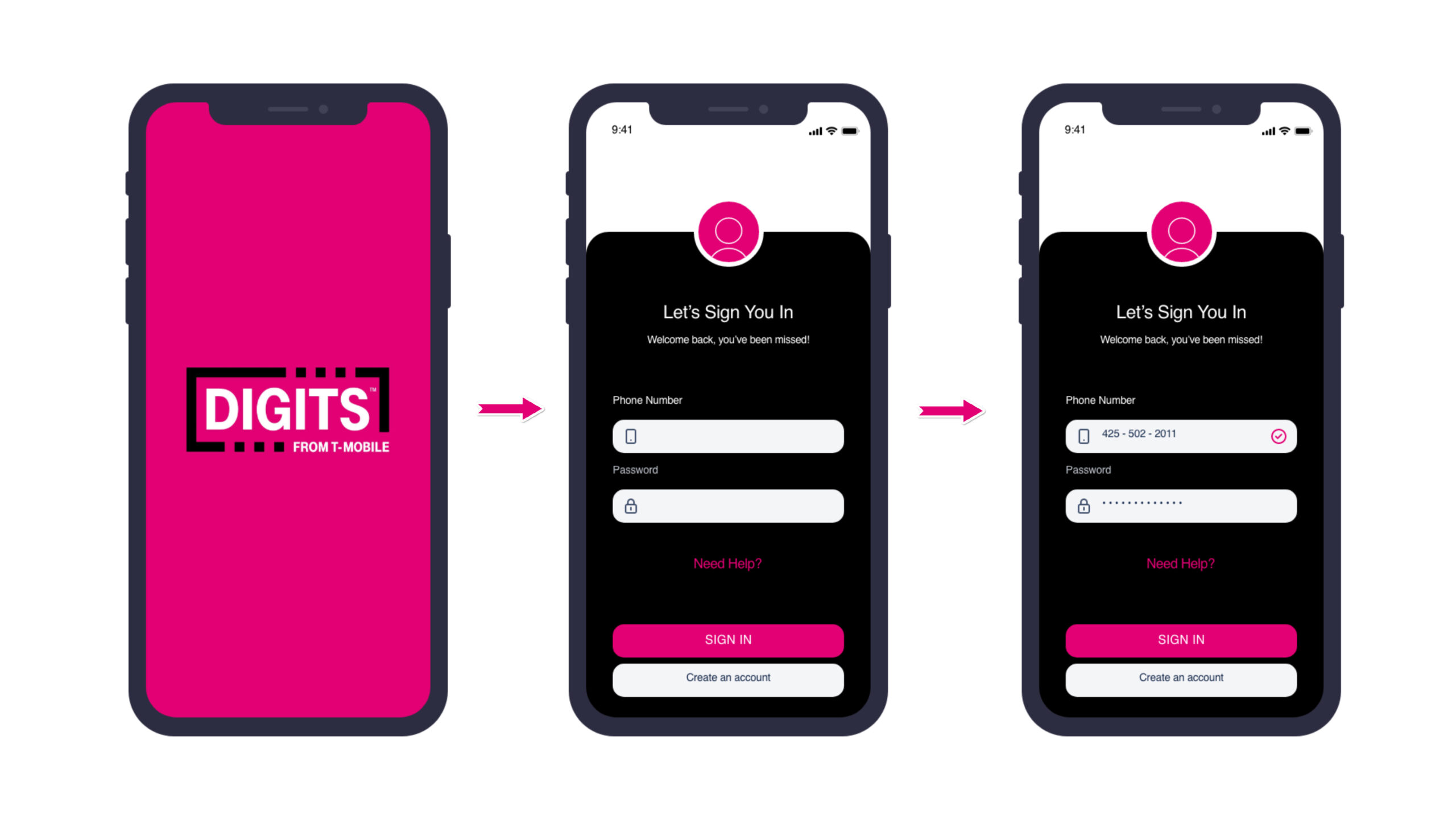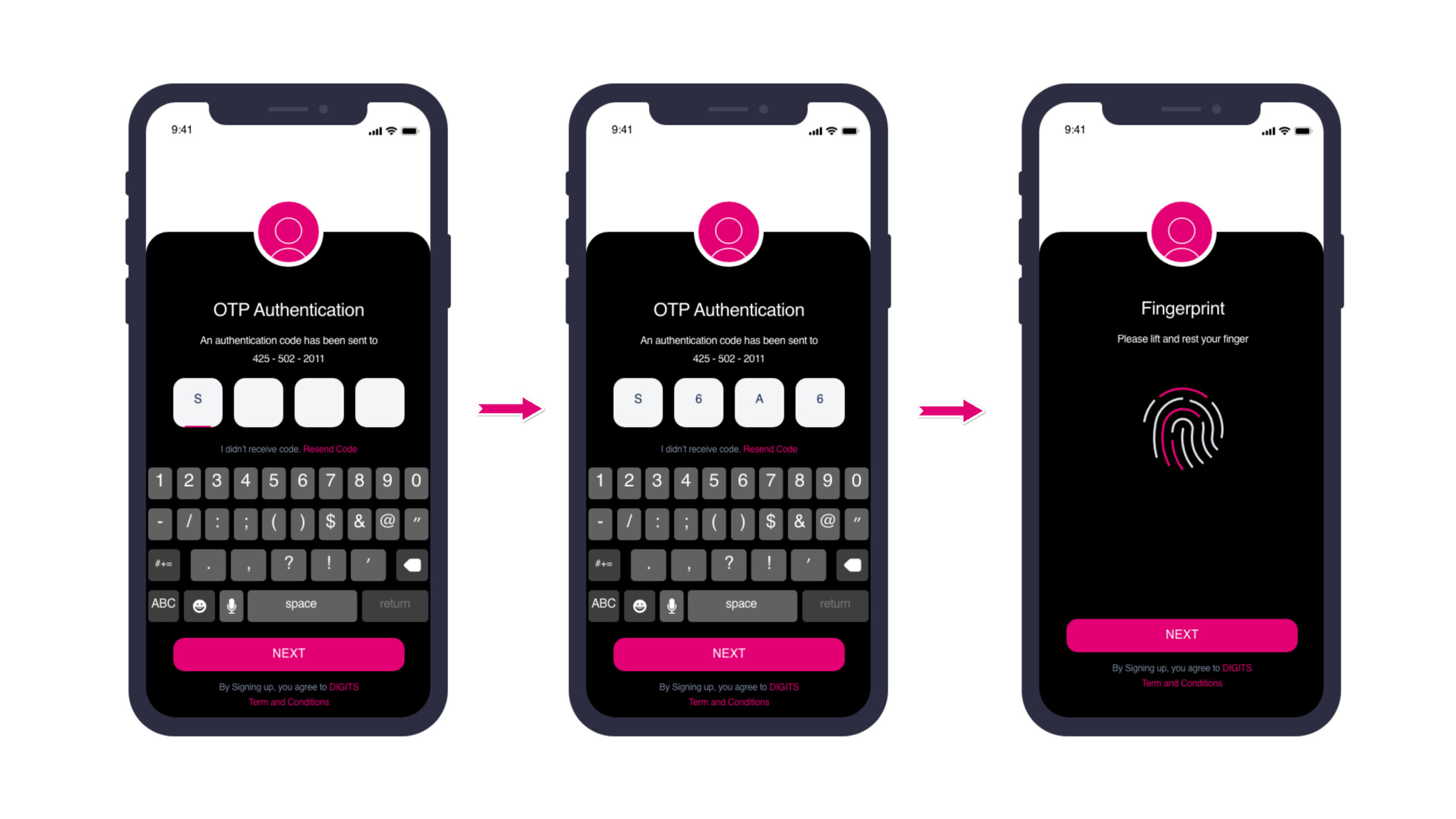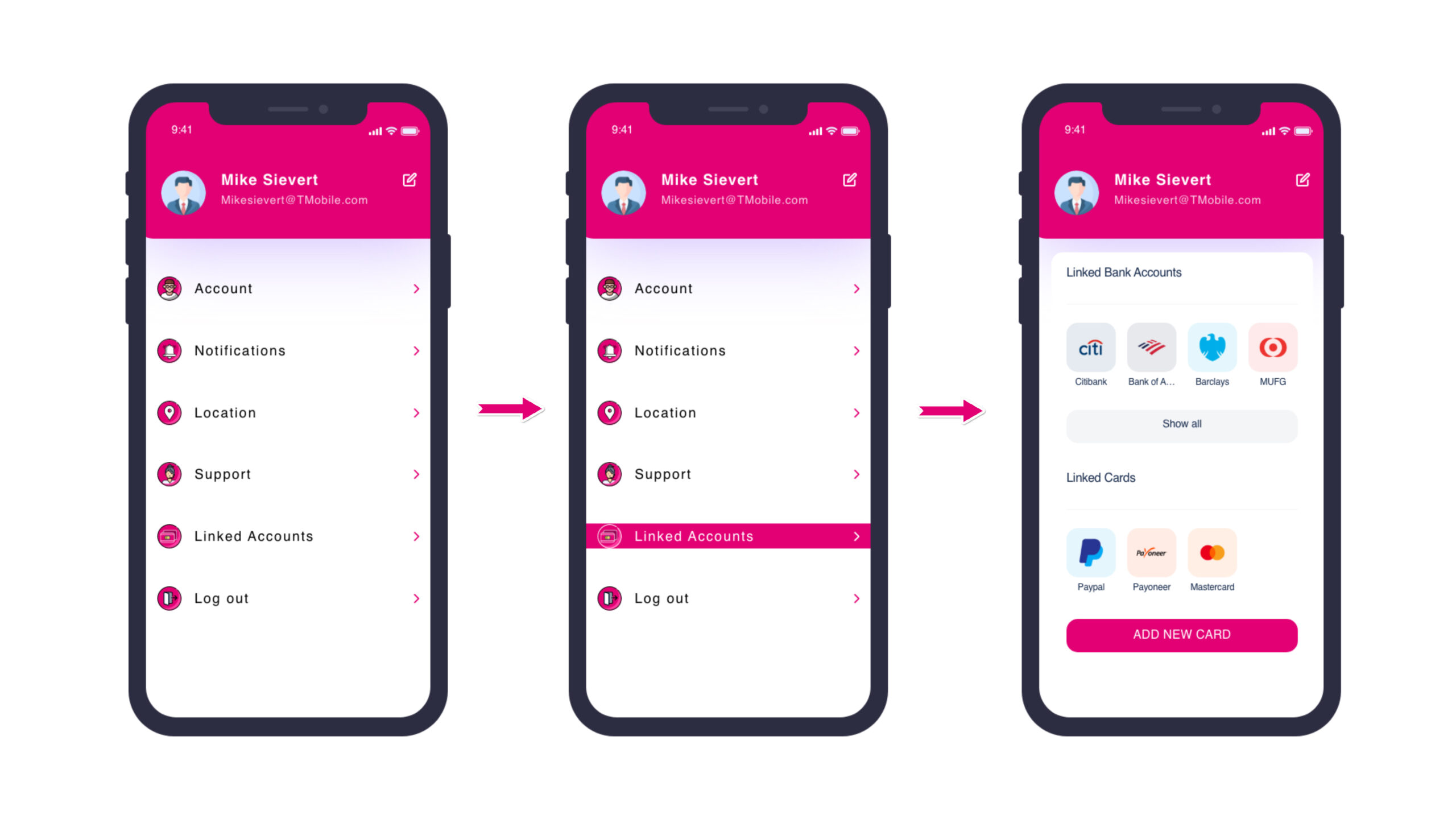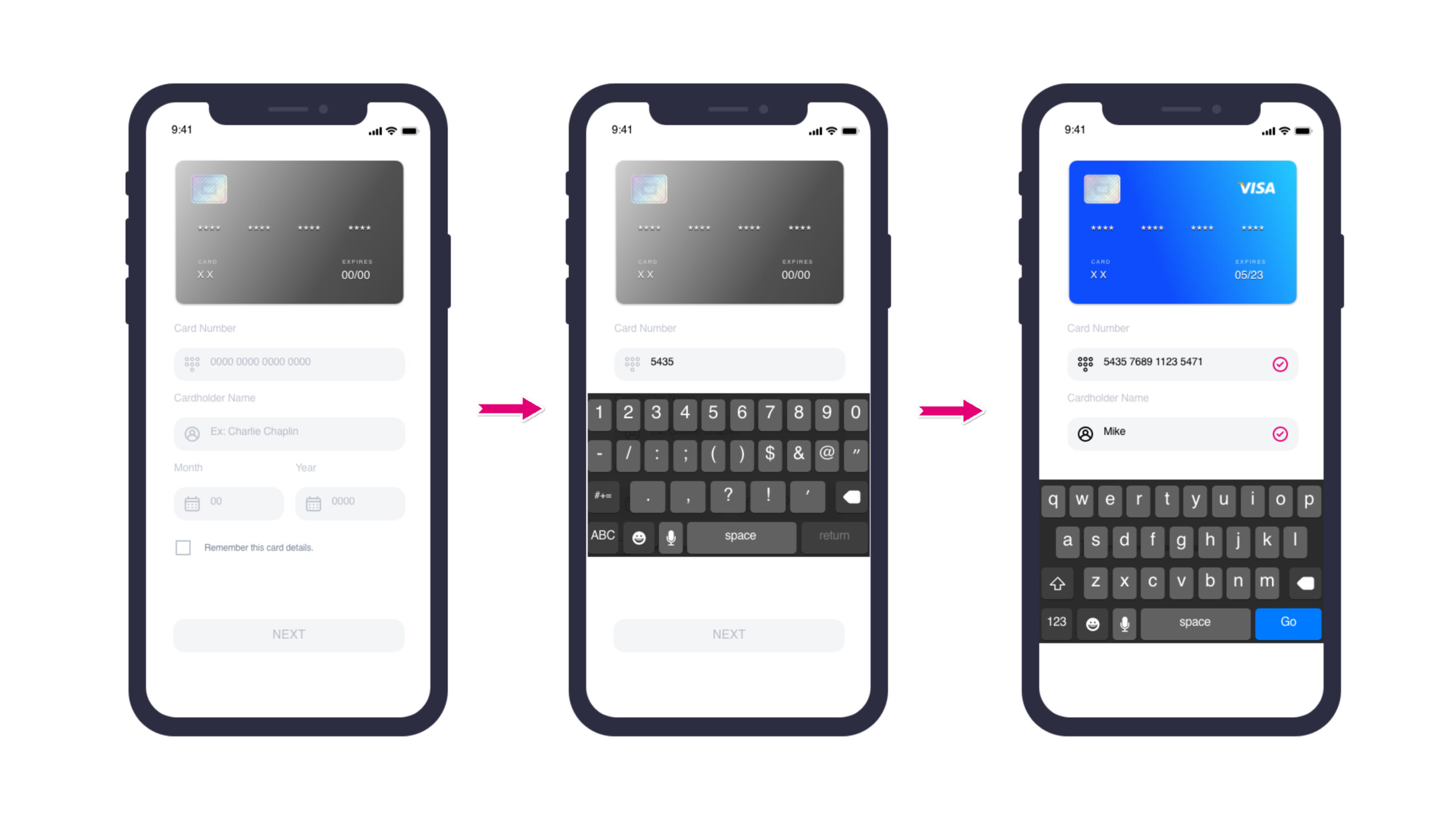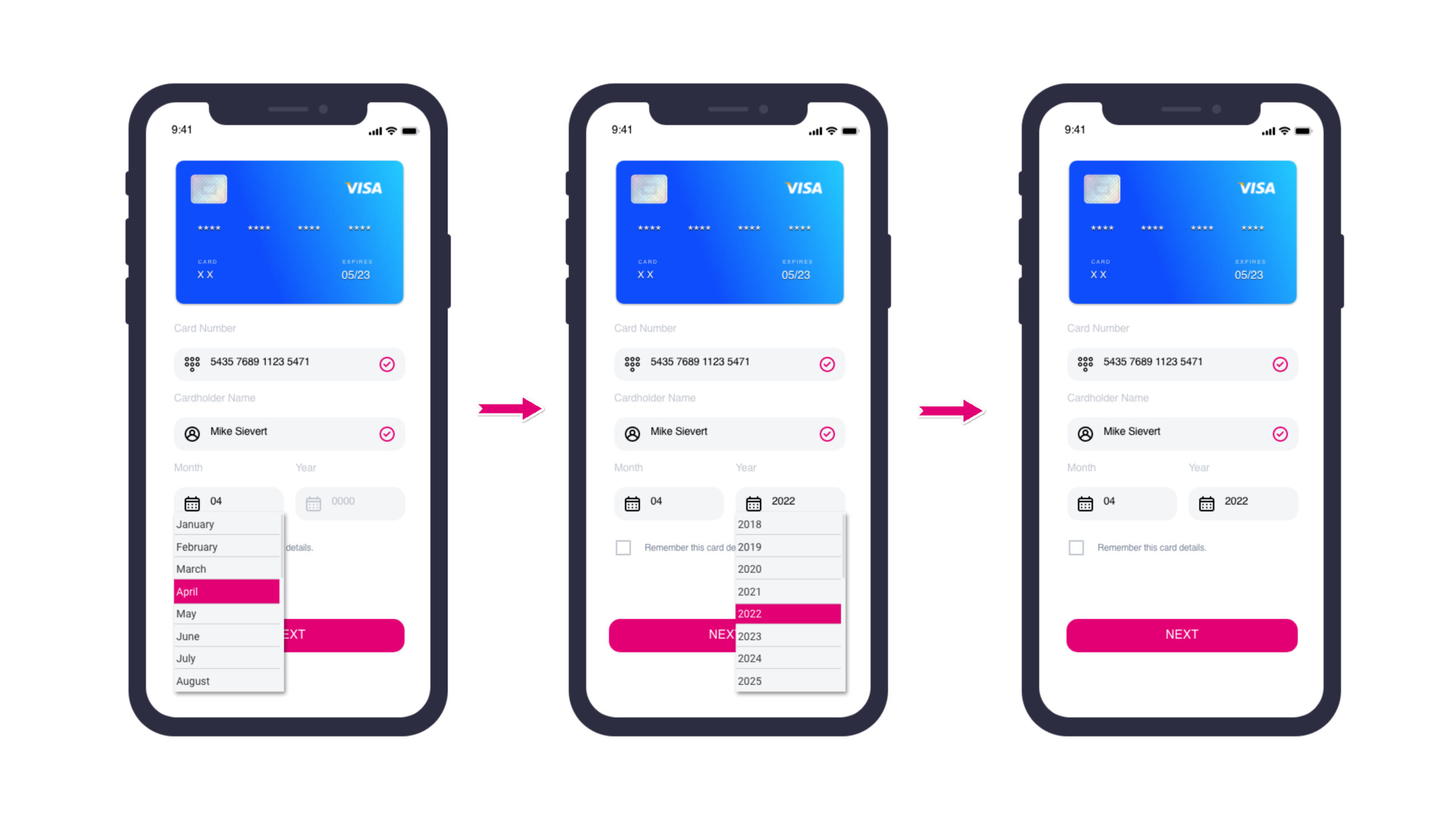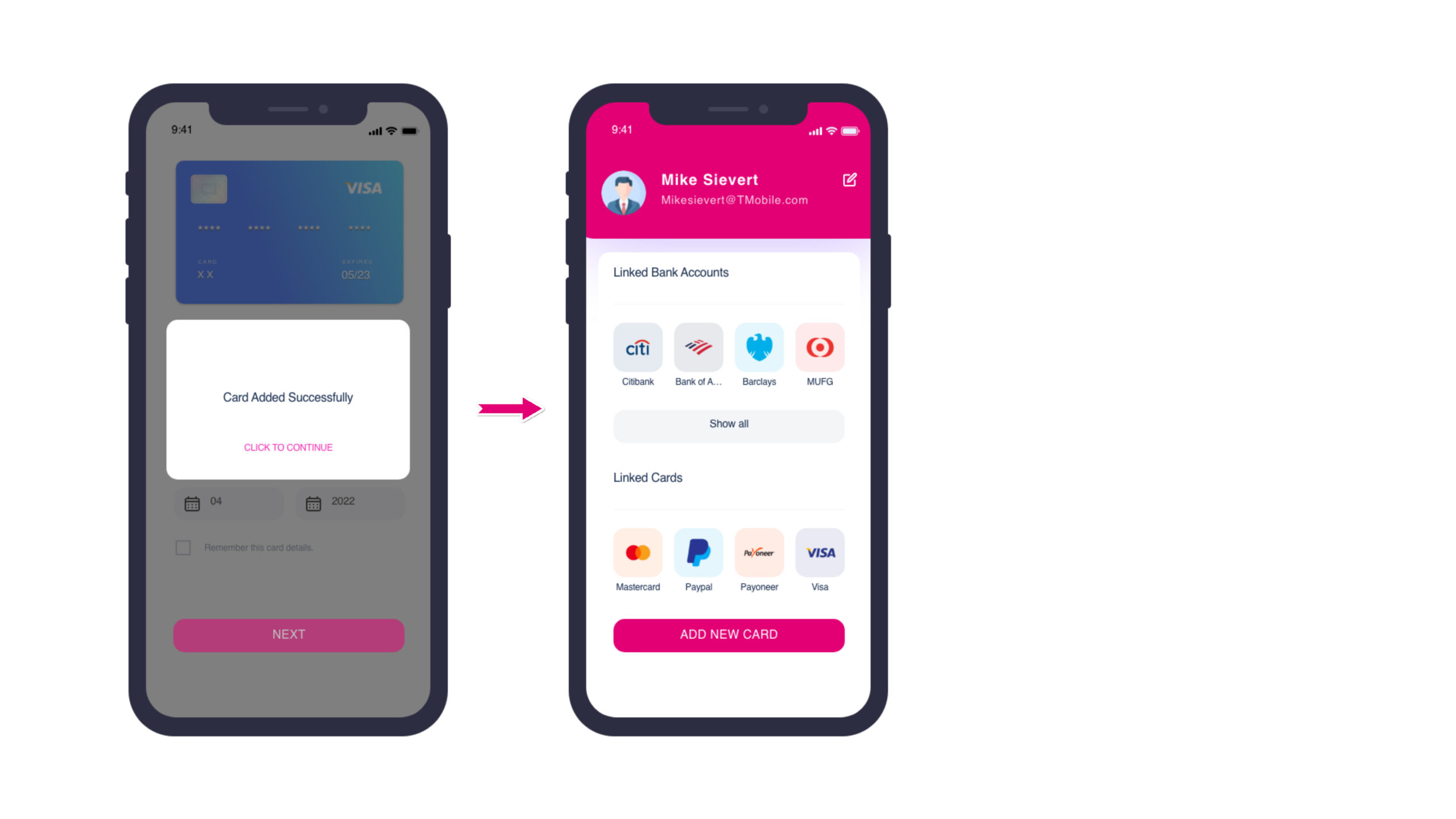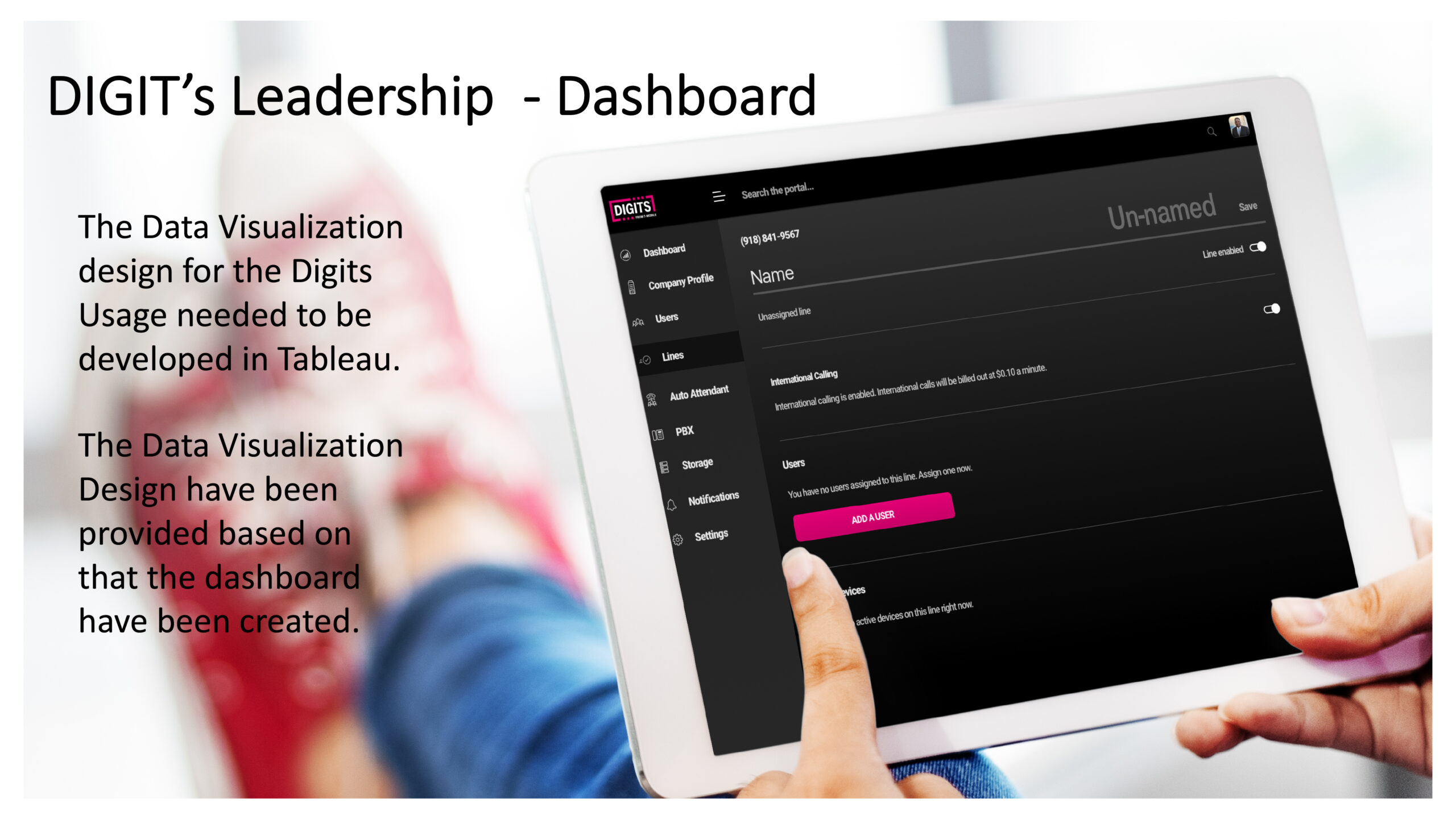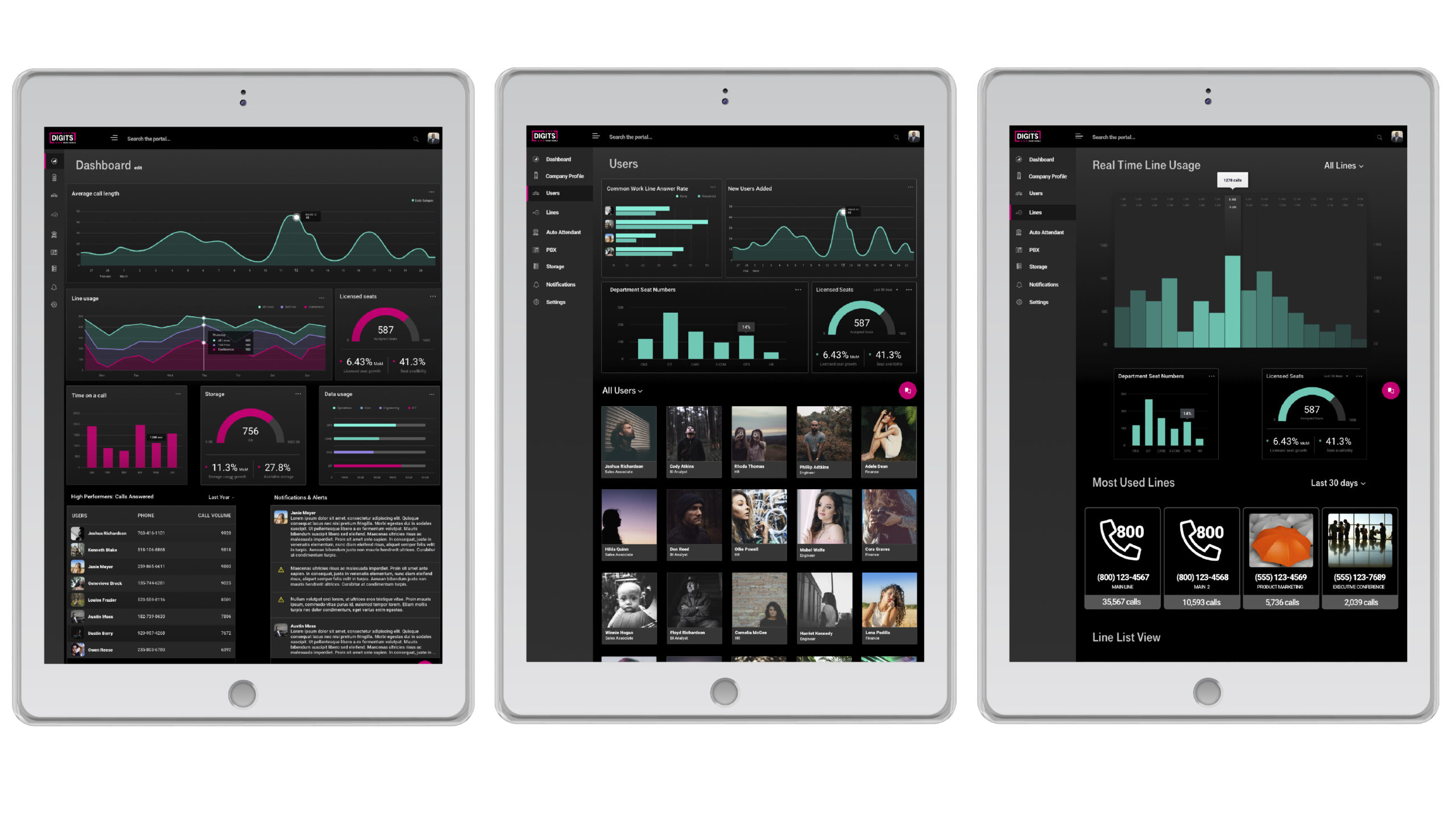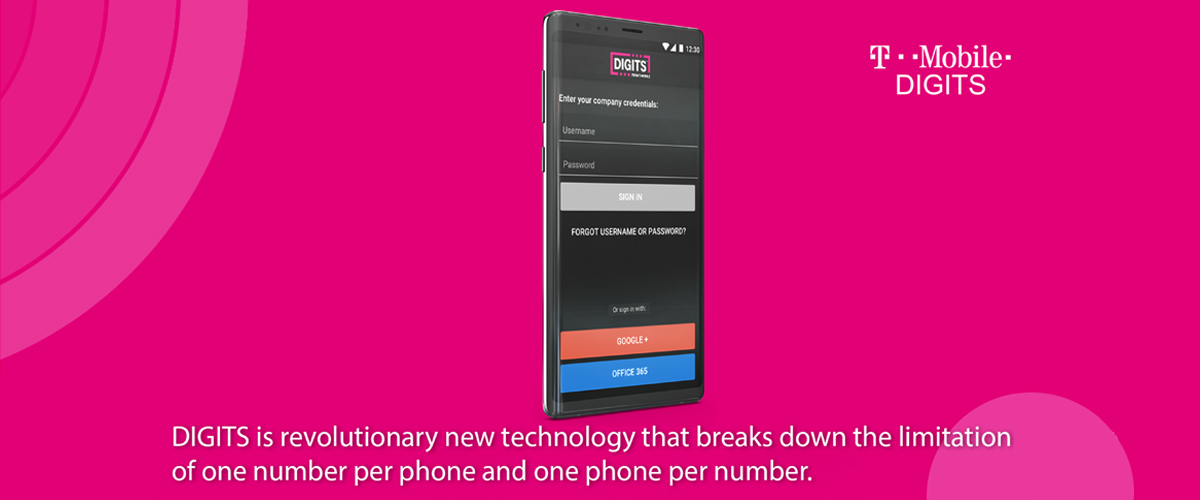
Project Overview
The DIGITS project, initiated by T-Mobile, aimed to redefine how users interact with their phone numbers across multiple devices. The core idea was to enable a seamless experience where a single phone number could be used across multiple devices without requiring a SIM card. Alternatively, users could have multiple numbers assigned to a single device for different purposes, such as work and personal use.
My Role
As a UX Designer and Android Prototype Product Lead, my primary responsibility was to establish a robust design system for the Android platform. This involved auditing existing components, creating a library of reusable and customizable design elements, and collaborating with product owners, business analysts, and scrum teams to deploy the project efficiently.
UX Process & Design Approach
1. Brainstorming & Research
Conducted stakeholder interviews to understand business goals.
Performed competitor analysis to identify gaps and opportunities.
Conducted surveys and focus groups to gather user needs and pain points.
2. User Personas & Journey Mapping
Developed multiple user personas based on extensive research.
Mapped out user journeys to identify key interaction points and pain areas.
Created empathy maps to better understand user behaviors and emotions.
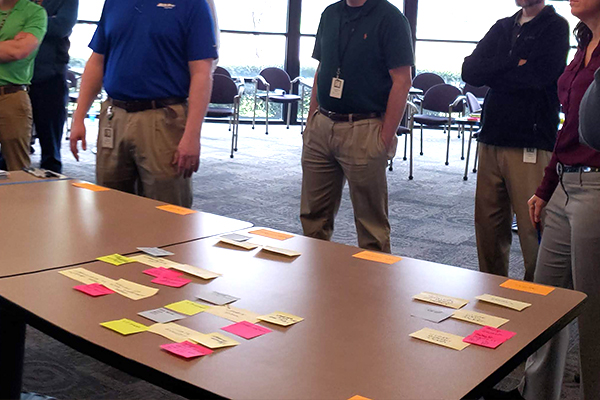
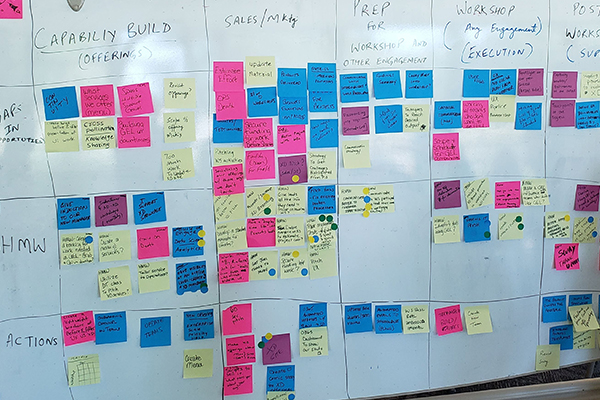
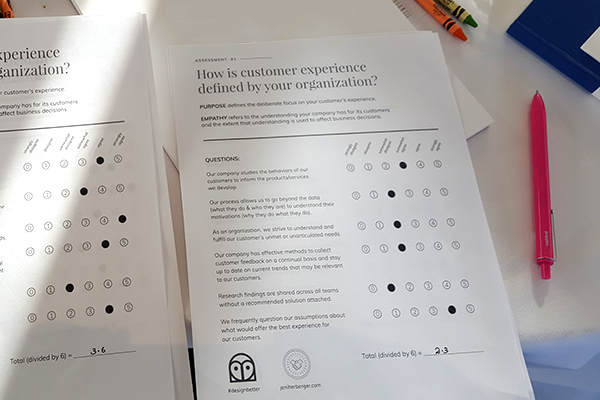
3. Wireframing & Prototyping
Designed low-fidelity (Lo-Fi) wireframes to visualize the user flow.
Conducted internal feedback sessions to refine the designs.
Developed high-fidelity (Hi-Fi) wireframes incorporating branding and UI components.
Built interactive, clickable prototypes using Figma/InVision to simulate real user interactions.
4. Usability Testing & Iterations
Conducted real user testing with early adopters and gathered feedback.
Analyzed heatmaps and user behavior analytics to refine the UI/UX.
Iteratively improved designs based on A/B testing results.
Ensured accessibility compliance and optimized for various screen sizes.
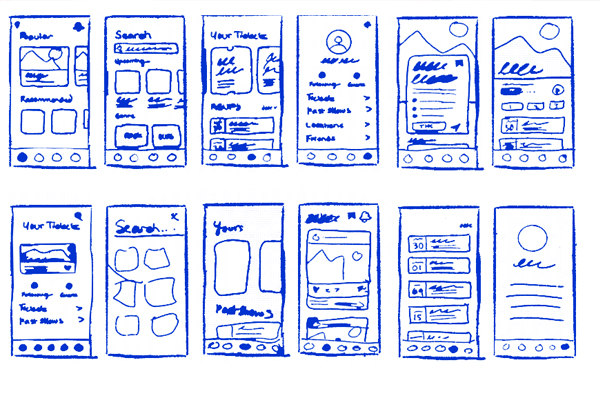
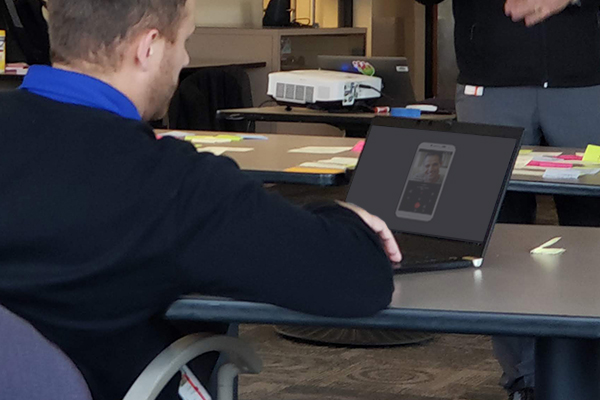
Key Features & UX Design Flow - Android Platform
1. Registration & Core Functionalities
Seamless onboarding and registration process
Integration with cloud PBX for in-and-out dialing
Support for basic and video calling
1-1 messaging and call history tracking
2. Advanced Calling Features
Conferencing and team collaboration tools
Call merging and multi-party conferencing (3-5 participants)
Voicemail access and recording meetings
Switch between personal and common work lines
Integration with Office 365 for improved contact management
3. Enhanced User Interactions
Ability to select, merge, and transfer calls with or without introduction
Intuitive Bluetooth device selection for seamless audio transitions
In-call messaging and contact management for enhanced collaboration
DIGITS Payment Portal - iOS Platform
The DIGITS Payment Portal was designed to offer a seamless financial management experience within the T-Mobile DIGITS ecosystem.
User Story
As a returning user landing on the financial overview screen, I want to easily view my linked accounts and add new payment methods, so that I can manage my finances efficiently.
UX Flow & Functionalities
Splash Screen – Establish brand presence and app loading interface.
Login Page – Secure access point for returning users.
Multi-Factor Authentication – Ensure user identity through layered authentication.
Profile Home Page – Personalized dashboard with quick navigation.
Linked Accounts & Cards Display – Overview of existing payment methods and financial accounts.
Add New Payment Method – Intuitive flow guiding users through form entry, validation, and confirmation.
Navigation Back to Linked Accounts – Smooth return to main dashboard, reinforcing user control and completion of task.
Data Visualization & Leadership Dashboard
To support executive decision-making and operational insights, I designed a data-driven dashboard experience in Tableau tailored for leadership use. The dashboard employed clean data visualization principles to present:
UX Flow & Functionalities
Real-Time Usage Analytics – Track live DIGITS activity to identify usage peaks and behavioral patterns.
User Engagement Metrics – Visualize interaction frequency, retention trends, and feature adoption.
Payment & Transaction Trends – Display aggregated financial activity for strategic financial planning.
These visual insights were organized with UX best practices in mind, focusing on scannability, intuitive filtering, and consistent layout. The dashboard empowered leadership teams with actionable intelligence, streamlining performance evaluations and business strategy alignment.
Conclusion
The DIGITS UX project was a transformative experience that blended design innovation with technical execution. By developing a structured design system, optimizing user interactions, and enhancing data visualization, I contributed to a seamless multi-device experience for T-Mobile customers. The DIGITS Payment Portal complemented the core service, ensuring smooth financial transactions within the ecosystem.
This project exemplifies the impact of UX design in driving digital transformation and improving user engagement by incorporating a full-fledged UX process from research to implementation.
